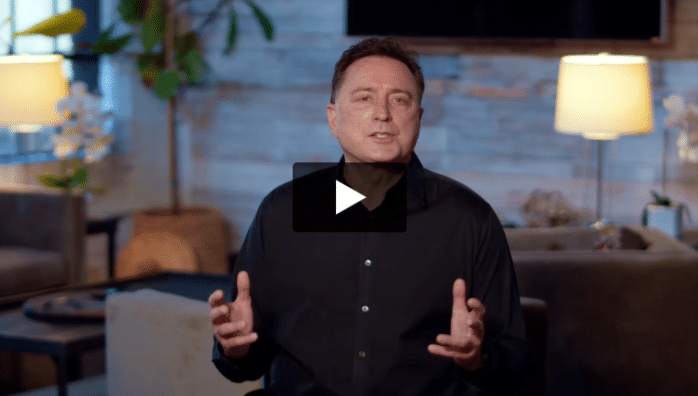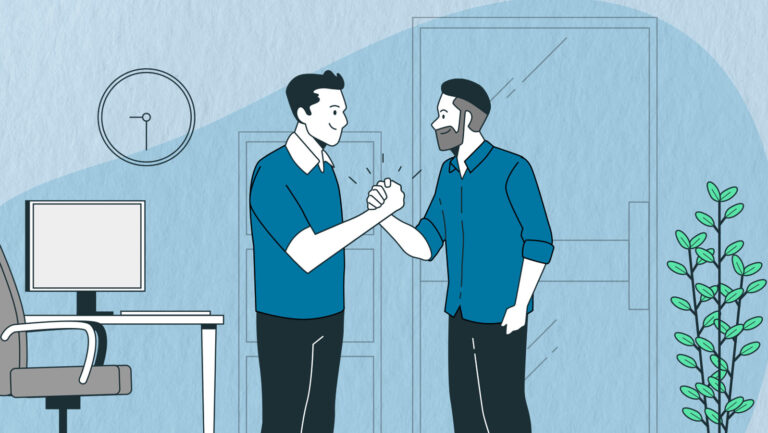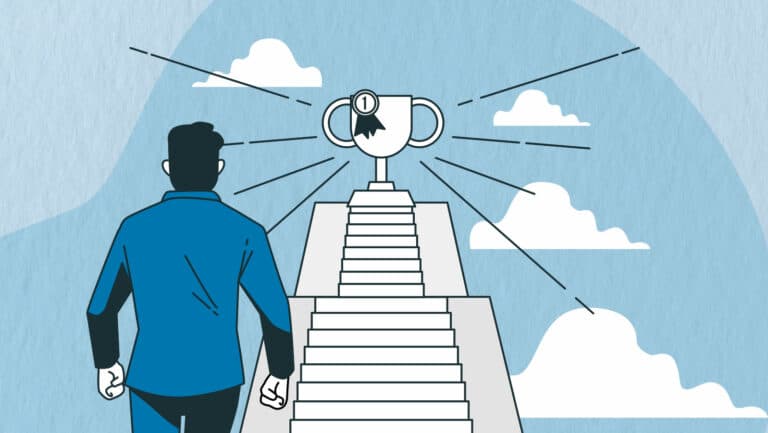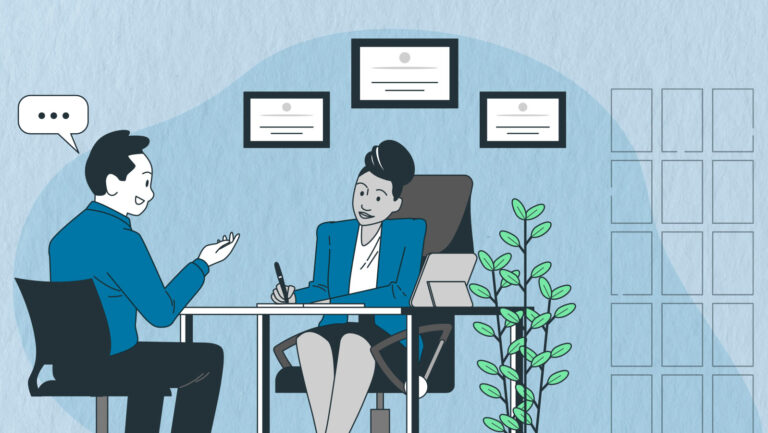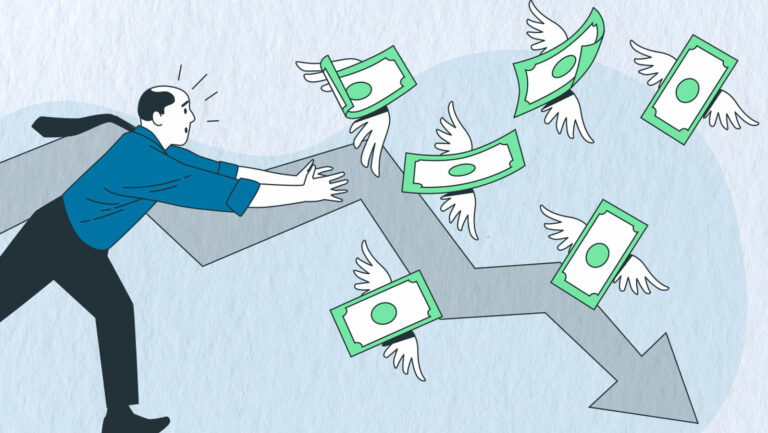
3 Self-Limiting Beliefs That Make Rejection in Sales Feel Personal
We all have fears, and you probably have experiences where they kept you safe from danger. However, these fears also have the potential to inhibit our growth, relationships, and opportunities.
Fears prevent us from extending outside our comfort zone, making a sales call to a c-suite executive seem psychologically risky and not worth the effort. And the more this is engrained, the less likely you’ll act against that belief. Along with limiting our potential, fear also leads to distress, anxiety, and worry. And this clearly places a big role in your success.
The average person has approximately 60,000-70,000 thoughts a day, and 90% of those thoughts are repetitive. Meaning every day, we’re essentially running unconscious thought patterns we had the day before. Not only are most of these thoughts redundant, but they also tend to be negative, as our brain utilizes a negativity bias to save us from potential disappointments or traumas.

Psychologists believe that by the age of seven, most of these patterns of beliefs are formed. Take a moment for that to sink in. So, it’s no wonder why so many sales and business development professionals suffer from low self-esteem, negative self-talk, and imposter syndrome.
We see fears play out in professionals in ways that are often obvious to others, yet many find it difficult to recognize how fears are impacting their career—let alone address them head on.
But fear of rejection in sales, or how to handle rejection in sales, is something many people search online as it’s easy to recognize in themselves.
THE PATH TO CHANGE
With 90% of our repetitive thoughts holding the steering wheel, you’re probably wondering, “How is change possible?”
The first step is simply an awareness, a mindfulness practice to pay attention, focusing on the present moment. Learning to identify your thoughts is the first step to changing your fears—and your life.
Is your fear of rejection, failure, embarrassment, or judgment limiting your success?
Left unchecked, fears can control everything we do as our critical inner voice takes control, creating a sense of powerlessness.

How can this play out in meetings?
We often see the following:
- Anxiety building up to the meeting or call
- Procrastination or lack of real call preparation
- Feelings of insecurity, doubt or even confusion
- Rushed small talk at the beginning to try to connect
- Thinking of what to say while the other person is talking
- Lack of courage to ask the “tough” questions
- Lack of clarity in next steps: who, what, when and where
- Continuous follow-ups that lead nowhere and deepen anxieties
Can you relate?
If so, let’s explore the 3 self-limiting beliefs causing you to feel this roller coaster of emotions and suffer through lackluster meetings.

Ready? Let’s take control of your inner voice and overcome it:
FEAR OF INADEQUACY
Do you often feel inadequate on customer calls, like you’re not good enough or unworthy of being there? Perhaps you can’t measure up to a driven coworker?
Maybe you feel bad because you can’t schedule meetings with customers you know need your help? Or, it’s that nagging inner voice saying your technical knowledge just isn’t good enough?
You may project confidence, but underneath that self-assured veneer, you fear letting someone down because you’re not as good as others in the market. Failure or embarrassment can also lead to feelings of inadequacy.
RECOMMENDED VIDEO
Teddy Roosevelt said, “Comparison is the thief of joy.”
Comparing yourself to others, whether it is compensation, experience, or technical knowledge, may leave you feeling inadequate. Feelings of inadequacy can quickly creep in when you compare yourself with others who are more accomplished than you.

To overcome their fear of Inadequacy, Elite Professionals have learned:
- To set realistic expectations. They need to be good at their role, but they aren’t perfect and never will be. Failing in the role is inevitable. Nobody in sales wins every time. Even Elite Professionals can’t avoid the occasional loss!
- That their self-worth isn’t based on their performance. They don’t rely on others to feel good about themselves or their performance.
- Not to dwell on past mistakes. One of the signs of a professional is being able to compartmentalize and move on. They use past mistakes as lessons learned, but they don’t ruminate and let past events impact their future performance.
- To be purpose-driven and focus on helping others be successful. Doing this articulates daily the value they bring to helping others achieve their goals or objectives.
FEAR OF REJECTION
How do you handle rejection? Most of us hate hearing the word “no.” However, in sales and business development, you face the possibility of hearing it on just about every task you perform.
Not everyone needs your solution and not everyone can afford it. So be ready to hear “no” regularly. It might be no to your proposal. Maybe it’s the “no” you get when trying to schedule a customer meeting or simply a customer ghosting you!
Does potential rejection bother you before talking to a customer?
Does rejection reinforce your critical self-talk about role failure, and does it take you time to recover from the setback? If any of these are familiar, fear of rejection may be affecting your confidence, performance, and ultimately role success.
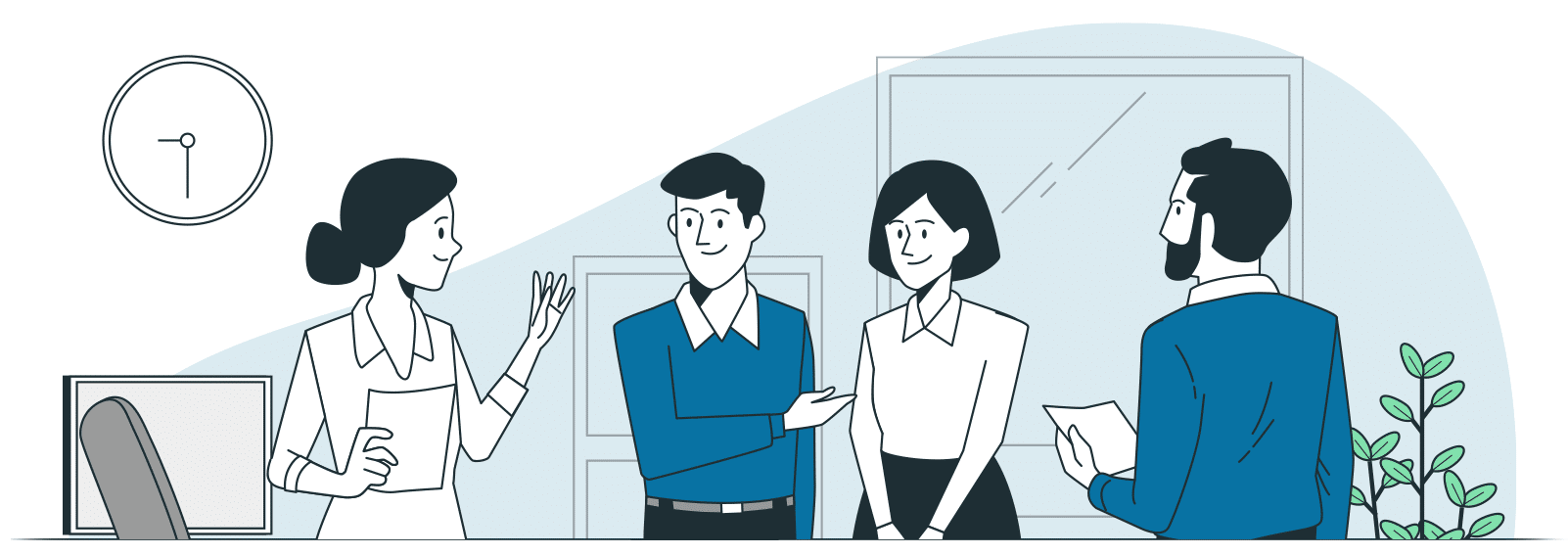
Rejection can cause doubt, a sense of failure and stress, all negative feelings most people want to avoid. In addition, people fearing rejection are usually afraid of not being liked, accepted, or publicly embarrassed. As a result, they are typically uncomfortable expressing their opinions, setting healthy boundaries, and saying “no” to others’ requests.
RECOMMENDED VIDEO
Elite professionals understand that it’s not the “no,” but their reaction to it or worse, avoiding putting themselves in a position to hear it.
They know that a “no” is not the customer rejecting them personally!
It’s not failure, they don’t become emotional, and they don’t make the situation worse by psychologically beating themselves up.
Remember that just because the fear is there doesn’t mean you have to listen to it or make it part of your identity.
FEAR OF JUDGMENT
Have you been in a situation where you just froze and didn’t know what to say next or couldn’t answer a customer’s questions? Your heart races, you blush, you perspire, and your palms become clammy. You’re embarrassed, and all you can think about is what the other person must be thinking or maybe how great it would be to crawl into a hole and die!
Fear of judgment is one of the biggest in business development and sales, and it comes in many forms—some real and some imagined. Let’s explore the two we see often:
- Judged for not being smart or technically competent enough to answer the customer’s questions
- Judged by a customer as pushy, aggressive, or even as “that sleazy salesperson.”

Many salespeople fear the customer judging them as a time-waster or incompetent if they can’t answer all their questions.
However, Elite Professionals understand that nothing ruins credibility faster than pretending to be an expert in an area you aren’t. They know there is no way to anticipate or prepare for every question.
They accept they aren’t perfect and that most customers value honesty and authenticity over fabricated answers.
RECOMMENDED VIDEO
Elite professionals are masters at orchestrating resources to get the best outcome for both the customer and their organization.
So when asked a question they can’t answer, they say something like, “That’s a great question. I’m not sure of the answer, but I will call you back this afternoon.” Then, they rely on their internal team to get the question answered on time.
A salesperson’s fear of being perceived as pushy, manipulative, and sleazy stems from being on the receiving end of a self-focused, aggressive, or over-eager salesperson peddling something that they didn’t need.

Elite professionals have learned an anti-selling mindset where they get to the heart of what the customer needs, their drivers for seeking a solution, and the impact of solving or not solving the problem.
They focus on determining the right solution without the presumption that it’s their solution. They always take a long-term view of the relationship and avoid doing anything to negatively impact it.
If you focus on helping people identify and address their needs to achieve their goals, you will never be perceived as “sleazy.”
summary
The fear of inadequacy, rejection, and judgment are all real and it impacts everyone differently. But remember, it’s just your critical inner voice. You can overcome it!

Be sure to:
Set realistic expectations and don’t base your self-worth on performance.
Focus on helping customers succeed rather than just making a sale.
Be upfront about knowledge gaps rather than trying to fake expertise.
Embrace “no” as part of the job—don’t it personally. Not everyone needs your solution.
Remember: Success comes from connecting and helping others, not from exceptional technical knowledge, flashy suits or inborn talent.
PS: If you’d like to connect with others easily (and consistently), check out our on-demand courses and coaching events where we show you how to create Winning Relationships™.
Start Today
Accelerate your career with the power of Winning Relationships.™
Accelerate your career with the power of Winning Relationships.™
